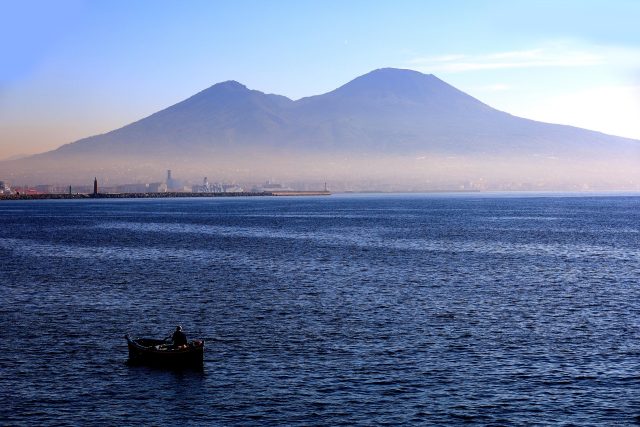
As the ECR Party gathers in Naples, the spotlight turns to conservative leadership in unlocking the full economic, environmental, and strategic potential of Europe’s maritime frontiers.
From July 10 to 12, 2025, the city of Naples will host a crucial gathering of policymakers, experts, and industry leaders at the ECR Party’s flagship event. Among the key themes to be discussed is one that resonates deeply with both historical and future-facing perspectives: “The sea sustains us economically, environmentally, and strategically. Europe’s coastlines are not peripheral; they are growth engines. From shipbuilding to coastal tourism, from aquaculture to deep-sea tech, the blue economy creates local jobs with global value. But unlocking this potential requires both vision and stewardship. A conservative perspective invests in work rooted in community and focused on the future. Progress does not require bureaucracy, it demands direction. For Europe, the sea is not a boundary; it is where interests, responsibility, and potential converge.”
This panel will highlight the urgent need to reframe how Europe sees its maritime spaces — not as distant margins, but as central pillars of resilience, innovation, and sovereignty.
Europe’s maritime identity is foundational to its cultural and economic heritage. From the bustling shipyards of Poland to the vibrant ports of Spain and Italy, the sea has long been a driver of commerce, connection, and civilization. Yet today, with mounting environmental pressures, evolving geopolitical threats, and untapped blue economy opportunities, the conservative case for a robust, principled approach to coastal and maritime policy has never been more compelling.
The Sea: A Tri-Dimensional Asset
First and foremost, the sea is a cornerstone of economic vitality. Maritime industries — shipping, fisheries, tourism, offshore energy, and emerging sectors such as marine biotechnology — contribute significantly to the EU economy. The blue economy generates over €750 billion annually and employs more than 4 million Europeans. Conservative policymakers have long championed frameworks that promote private investment, protect traditional industries, and ensure that economic growth does not come at the expense of natural heritage.
But beyond the economy, the environmental dimension is equally critical. Europe’s seas are under threat from pollution, overfishing, and the impacts of climate change. A conservative vision, rooted in stewardship and sustainability, calls for smart regulation that preserves marine ecosystems while enabling responsible usage. This includes combating illegal fishing, investing in marine protected areas, and supporting innovation in cleaner maritime transport.
Finally, and perhaps most pressingly in the current geopolitical climate, the sea is a strategic frontier. The Mediterranean, the North Sea, and the Baltic are not just trade routes — they are borders that must be safeguarded. As global power competition intensifies and migration flows increase, Europe must ensure control and surveillance over its maritime domains. This means strengthening naval capabilities, investing in coastal infrastructure, and fostering closer cooperation among like-minded states. Conservative leadership emphasizes sovereignty and security — values essential to protecting Europe’s maritime interests.
Coastal Regions: Europe’s Engines of Growth
Contrary to outdated narratives that place coastal regions at the margins, these areas are increasingly at the heart of Europe’s dynamism. Naples itself, the host city of this year’s ECR event, exemplifies the potential of coastal regions to drive development, culture, and connectivity. With ports serving as hubs for global trade, tourism, and innovation, coastal cities are uniquely positioned to lead Europe’s next wave of growth.
The ECR panel aims to shed light on the need for investment in coastal infrastructure, better coordination between national and EU-level maritime strategies, and stronger support for local communities. Conservative governance prioritizes subsidiarity and pragmatism — ensuring that decisions affecting ports, fisheries, or coastal tourism are made close to those who live and work by the sea.
Naples 2025: A Crucial Moment for Maritime Europe
The presence of key stakeholders — from port authorities and environmental NGOs to defense experts and fishing industry representatives — at the Naples panel underscores the breadth of the maritime agenda. It is a chance to unite diverse voices under a shared vision: one that values both tradition and innovation, both national sovereignty and European cooperation.
The ECR Party’s decision to foreground this issue reflects a clear understanding: the future of Europe cannot be charted without the sea. Whether through fostering blue economy opportunities, defending Europe’s strategic autonomy, or protecting marine ecosystems for generations to come, a responsible, conservative approach offers real solutions.
As discussions unfold in Naples, the message is clear: Europe’s coastlines are not the end of the road — they are gateways to prosperity, security, and renewal. And with sound conservative leadership, they can become the anchors of a stronger, freer, and more resilient Europe.



 Subscribe
Subscribe